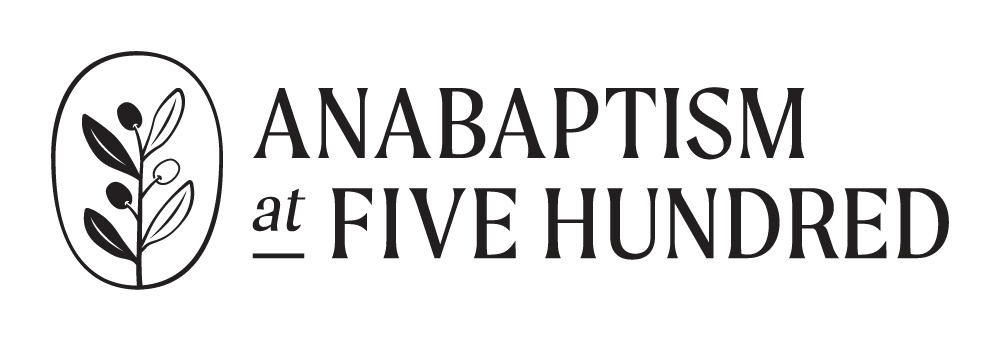January 16th, 2025Anabaptism at 500: Looking Back to Look Forward
A Joint Message from Members of the Anglican-Mennonite Dialogue in Canada
 The contemporary commemoration of anniversaries in Church history is inherently complicated. This is even more the case when the moments in question are connected to the emergence of divisions between members of the Body of Christ. While some may look to these events as instances of the recovery of the heart of the Gospel, others may decry the same developments as ruptures in the bonds of unity between Christians which initiated waves of suspicion, hostility, and violence.
The contemporary commemoration of anniversaries in Church history is inherently complicated. This is even more the case when the moments in question are connected to the emergence of divisions between members of the Body of Christ. While some may look to these events as instances of the recovery of the heart of the Gospel, others may decry the same developments as ruptures in the bonds of unity between Christians which initiated waves of suspicion, hostility, and violence.
 The year 2025, as the 500th anniversary the start of the Anabaptist Reformation in Switzerland, is one such example. The action in 1525 by figures such as Conrad Grebel, Felix Manz, and others, to publicly (re)baptize themselves and their followers as adult believers against the decree of the Canton of Zurich, was, at root, an expression of a conviction about the extent to which the Church should adhere to the will of civil authorities in determining matters of theology and practice. The various Christian communities which emerged as expressions of the Anabaptist movement since that time – Mennonites, Amish, Hutterites, Church of the Brethren, etc. – have tended to interpret these events as inspiring examples true faith and Gospel freedom. Yet other Christians including Anglicans – both of that time and now – have sometimes decried them as a choice for schism which did harm to the witness of the Church in the world.
The year 2025, as the 500th anniversary the start of the Anabaptist Reformation in Switzerland, is one such example. The action in 1525 by figures such as Conrad Grebel, Felix Manz, and others, to publicly (re)baptize themselves and their followers as adult believers against the decree of the Canton of Zurich, was, at root, an expression of a conviction about the extent to which the Church should adhere to the will of civil authorities in determining matters of theology and practice. The various Christian communities which emerged as expressions of the Anabaptist movement since that time – Mennonites, Amish, Hutterites, Church of the Brethren, etc. – have tended to interpret these events as inspiring examples true faith and Gospel freedom. Yet other Christians including Anglicans – both of that time and now – have sometimes decried them as a choice for schism which did harm to the witness of the Church in the world.
Based on their origins and early history, the Anglican and Mennonite traditions might be understood to be far apart from one another in their assessment of the church-state question. For that reason, it could be assumed that an Anglican-Mennonite ecumenical dialogue would have difficulty addressing Anabaptism at 500. And yet we, as members of the Anglican-Mennonite Dialogue in Canada, feel compelled, both by our love for one another, and by our common desire to be disciples of Jesus in our context today, to find a way to speak about this commemoration together. We do so by drawing on the ecumenical methodology which undergirds our work – that of Receptive Ecumenism.
The ecumenical movement for much of the twentieth century was dominated by an approach which can be described as consensus ecumenism. From this perspective, the problems that keep Christians apart are doctrinal differences. In this model, the way to heal the rifts in the Church lies in achieving agreement on historically controverted issues. Consensus ecumenism, therefore, begins in the past, and takes the characteristic features of divided expressions of Church as defining of the terms of the relationship at present. Paradoxically, it can unintentionally reinforce these differences.
Receptive ecumenism, by contrast, takes what could be in the future as a starting point. Rather than looking at the historical differences and working to overcome them through convergence on doctrine, it begins by looking at where the communities descended from these traditions find themselves now. It gives thanks for the distinctive gifts of each tradition in the present, and imagines how sharing these gifts might bring needed balance and healing to one’s own present ecclesial wounds, in order to build the capacity to join together in common mission in the future.
Keeping this methodology in mind is instructive for engaging the 500th anniversary of the origins of Swiss Anabaptism with an ecumenical lens. It allows Anglicans and Mennonites to avoid either mythologizing or adjudicating between heroes and villains, winners and losers, right and wrong. Instead, we can give thanks to God together for the ways that the Anabaptist movement has borne unique witness and continues to serve as a sign and instrument of God’s grace, justice, and peace in the world. We can grieve together the ways that our forebears’ inability to understand one another – exacerbated by political motivations and human weakness – led to disdain, estrangement, and even persecution between fellow disciples of Christ. And perhaps most importantly, we can ask each other honestly what we need to receive from one another now as we seek to become faithful followers of Jesus together again, both today and tomorrow.
It is in this future-oriented posture which we share this joint message as Mennonites and Anglicans in dialogue in 2025. Anniversaries are an opportunity to look to the past and also to the future. As two churches with very different histories, we both seek to rediscover what we are called to now, in this land called Canada. We are trying to learn once again how to live out a Jesus-shaped witness in a complicated age of challenge and change.
Whatever lies ahead, we are certain that we have much to learn from one another, and that we will need each other greatly. Together, we look to the next 500 years and all that the Holy Spirit has in store for us as we follow the way of Jesus.
---
Anglican Church of Canada
Elin Goulden (Co-Chair)
Chris Bishopp (ELCIC Member)
Charlie Scromeda
Bram Pearce
Ryan Turnbull
Scott Sharman (Staff)
Mennonite Church Canada
Sarah Kathleen Johnson (Co-Chair)
Irma Fast Dueck
Michael Pahl
Neill von Gunten
Edith von Gunten
Caleb Kowalko
Doug Klassen (Staff)
Graphics used by permission from MennoMedia.